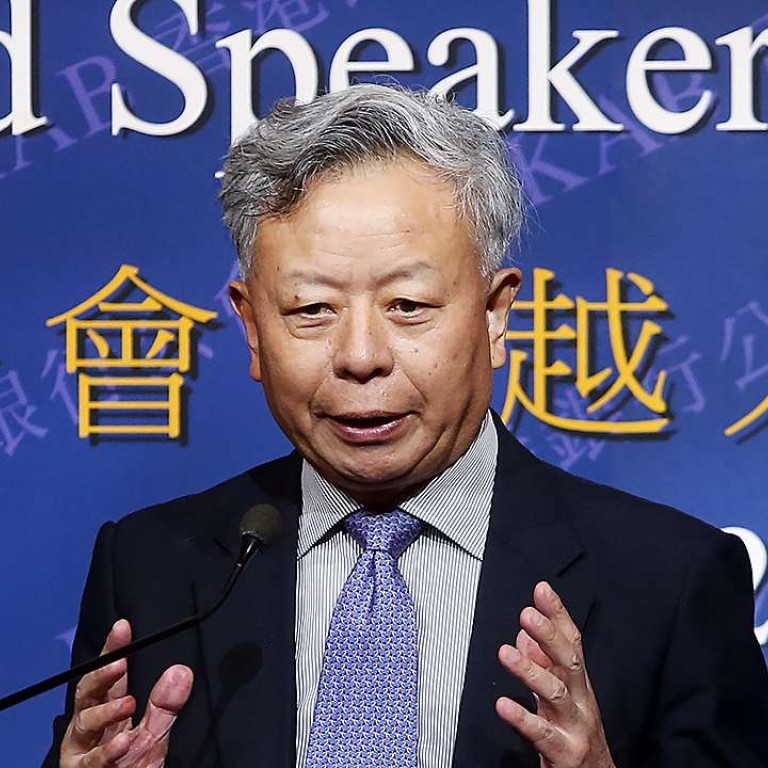
AIIB chief wants Hong Kong to raise and manage funds for lender
Jin Liqun says Taiwan has to apply through the mainland’s finance ministry if the island wants to join AIIB
Top officials with the China-led Asian Infrastructure Investment Bank will meet within weeks to discuss the mechanism to accept new members, including Hong Kong, said the lender’s president Jin Liqun yesterday.
Jin also expressed a strong interest in leveraging the city’s financial position to raise and manage funds for the AIIB.
More than 50 countries and economies have shown an interest in the bank, of which 30 have indicated a firm intention to join, including Hong Kong, Jin said. The lender hopes to increase the number of members to 100, nearly double the current 57. “We are going to have a second board meeting at the end of this month and we will discuss the procedure for accepting new members. Hong Kong is certainly part of this group,” Jin told an audience at a forum in the city.
“If things go well, in June we could have serious discussion of new members.”
Hong Kong eyes bigger role in offshore yuan trade by joining Asian Infrastructure Bank
Jin said Taiwan would have to apply though the mainland’s Ministry of Finance if the island wanted to join as stipulated by the bank’s charter article of agreement.
“Our charter clause 3.3 has stipulated non-sovereign areas and those areas not responsible for their international affairs should apply through their sovereign governments. Hong Kong should apply through the Chinese Ministry of Finance and it should be the same case for Taiwan.
“Our institute must follow our charter seriously. If we don’t comply with our charter, we will have no credibility,” Jin told the forum.
Jin indicated last month that Hong Kong might be able to join as a sub-sovereign member by the end of this year, and that he hoped to raise funds and conduct currency trading in the city.
“Hong Kong has good qualifications and it is totally reasonable to move [some] capital to be managed by Hong Kong.”
AIIB has authorised capital of US$100 billion and an initial subscribed capital of US$50 billion. Jin said he expected the bank to have an asset portfolio of US$1.5 billion this year and estimated the scale to reach U$$ 4-5 billion “at a minimum” in the next five years.
Hong Kong may join China-led AIIB development bank by year’s end, says lender’s president
As a financial hub, Hong Kong could serve bond issues and handle other capital management for the AIIB, while the lender could work with banking networks in the city, Jin said. He also said Hong Kong had experienced consulting and legal firms, which could help in dispute arbitration. “We will certainly have a special seat for Hong Kong. It’s already in my heart ... Please trust us, we will work hard and solve Hong Kong membership as soon as possible.”
But he sidestepped questions about whether the AIIB would open an office in the city. “It does not matter if there is a headquarters in Beijing and having another office in Hong Kong; it depends on whether Hong Kong can provide services for the AIIB. Stability is also very important.”
When asked if he thought Hong Kong was stable, Jin said: “I think most of the people in Hong Kong support the central government; those people who make a noise are in the minority.”
He also stressed the AIIB had installed a mechanism to avoid corruption, and given its first president was Chinese, its head of ethics or human resources would come from elsewhere. “I am not saying 100 per cent there won’t be corruption, but there won’t be major corruption cases,” he said.
Responding to a suggestion Canada may consider joining the AIIB, Ministry of Foreign Affairs spokesman Lu Kang said the bank was “open and inclusive”.


